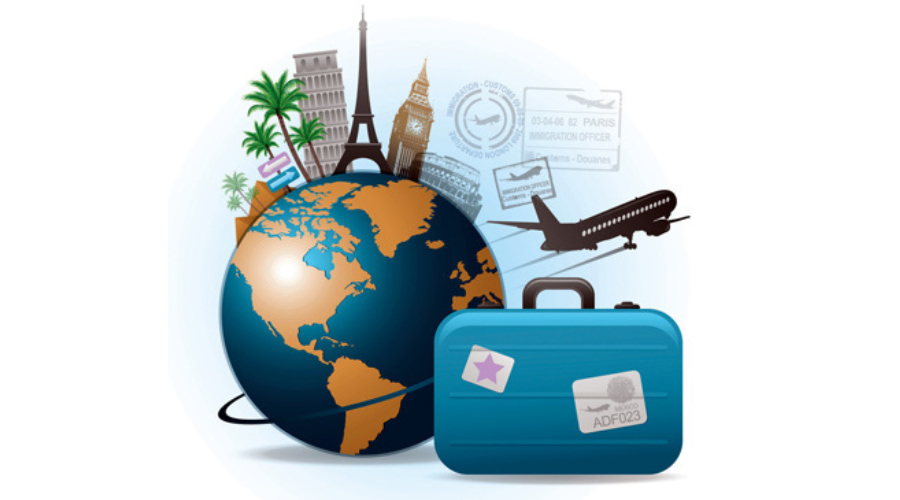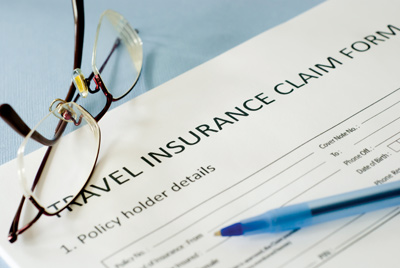Travel insurance is something many frequent flyers brush aside as an unnecessary expense, but recent events have heightened the need to assess the range of products available, notes Ramzi Ghurani.

In today’s interconnected, interdependent and increasingly accessible world, international travel has become routine. Ever-expanding airline networks, competitive low-cost carriers and the development of modern airports have ensured the accessibility of international travel to more people than ever.
In 2013, according to calculations by the United Nations World Tourism Organisation (UNWTO), 1.4 billion people crossed a border – or one in six of the world’s population. Jumping on a plane in London at 8am to attend a meeting in Zurich at 11am, or swapping the cold of Malmo for the brilliant sunshine of Malaga within the space of an afternoon, is as straightforward as jumping on the commuter train to work.
With routine, though, comes complacency. Do we really consider the variables that could affect a carefully considered itinerary, whether it’s weather, plane maintenance, industrial action, rerouting due to health emergencies or political instability?
Do we ever factor in what could happen at the other end – lost luggage, stolen wallet, a health episode – in a country we might not know or whose language we don’t speak?
Simply turning on the TV ought be to enough of a guide. Whether its rolling news networks covering stranded passengers from Eyjafjallajökull’s eruption in Iceland in 2010 or the despair of loved ones waiting for updates on Malaysian Airlines flight MH370 in 2014, or shows making entertainment out of lost luggage auctions, the potential pitfalls of travel are ubiquitous these days.
The good news is a large percentage of travellers do understand. According to the United States Travel Insurance Association,29 million travellers spent a combined USD1.9 billion on travel insurance plans in 2012 – a 14 percent growth on 2011. Of the policies bought, 94 percent included trip cancellation coverage, which is important in a market where 12 percent of trips are affected by adverse weather.
On the other hand, though, there seems to be a considerable way to go in certain markets. According to the Foreign and Commonwealth Office in the United Kingdom, Britons spend more on magazines and sweets at the airport than they do on travel insurance, even though in 2012, British travellers reported 28,659 lost and stolen passports or travel documents.
In the United Arab Emirates, just 11 percent of residents said they always purchase travel insurance when heading overseas. Of those who never buy travel insurance, which is about eight percent, more than half said they’ll never need it or never need to make a claim – and this in a country where two-thirds of the population travel three times a year.
INSURANCE OPTIONS
The picture is certainly uneven. Travel insurance is a product many people continue to buy, recognising its role in delivering pre-travel peace of mind and critical solutions, but there are still large numbers of people who are oblivious – wilfully so, it seems – to the potential downside of travelling uninsured.
Ultimately, in my experience, the clients who appreciate travel insurance are those who have endured a negative situation overseas without it or who travel so frequently they buy annual multicover policies to avoid the worry or inconvenience of having to insure each trip. In the Middle East, the region in which we have most expertise, insurance is also often tied in with visa applications, where international bookings have to be made before the necessary permissions are processed – and sometimes denied.
What needs to be better communicated to those not buying insurance is the range of products available.
GENERAL TRAVEL INSURANCE
These are typically off-the-shelf packages available from most insurers that can cover a whole range of eventualities, with certain variables that take into account the following criteria:
- Trip length.
- Geographical area visited.
- Personal effects (preselected but with limits).
- Activities undertaken (extreme sports, etc).
- Trip frequency (annual versus single trip).
SPECIALISED TRAVEL INSURANCE
There are also more specialised types of insurance, based on certain particular occurrences or mishaps that are beyond the traveller’s control. The list below offers the most common that travellers ought to consider.
TRIP-CANCELLATION/ INTERRUPTION INSURANCE
In a volatile world – politically and meteorologically – this insurance covers any pre-paid flight or tour that has been delayed or cancelled. Putting this in some perspective, during Snowstorm Nemo in February of 2013, 3,700 flights were cancelled.
There may also be reasons that you’re unable to travel, such as illness to you or a loved one or an accident that either prevents you from leaving home or makes you miss your flight. Trip interruption coverage means you’re unable to complete an itinerary, reimbursing you for the unused portion.
MEDICAL INSURANCE
This might be important if your existing health insurance policy doesn’t cover overseas trips or, if travelling from a country with a national health scheme, the destination’s health system isn’t free or of a standard you’re comfortable with. It can include primary coverage up to certain limits as well as emergency surgeries or overnight stays. It’s important in the latter cases to establish how bills are paid and reimbursed.
For older travellers or those with specialised health issues, a general travel package may prove to be better value and still come with repatriation coverage.
EVACUATION INSURANCE
Related to the above, this coverage will help get you to a decent hospital in the shortest time possible. Only related to medical emergency, there will be a number of exemptions such as adventure sports like free-form rock climbing.
EXISTING COVERAGE
Whether you take out travel insurance or not, some elements of travel are already covered. Some credit-card issuers offer a degree of protection on flights purchased, so it pays to assess the degree before choosing to do without.
Also, airlines offer compensation in certain situations. For lost baggage, there is usually a maximum limit of USD3,000, which may not always be enough to cover the items misplaced. In more catastrophic cases, such as Malaysian Airlines, the Montreal Convention requires the carrier to make some advance payment to families of the passengers to help with any travel and accommodation.
Happily, travel insurance claims remain infrequent and usually relate to lost or stolen possessions, including bags, and delayed flights. The worst rarely happens. But insurance is all about answering the age-old question: “What if?” It’s protection for you, your loved ones and your money. And it perhaps ought to be the first thing you purchase.

RAMZI GHURANI
Managing Partner




